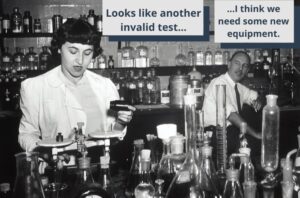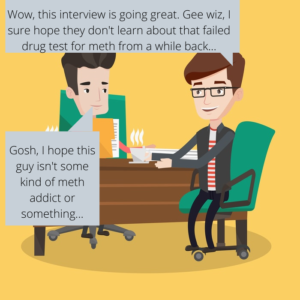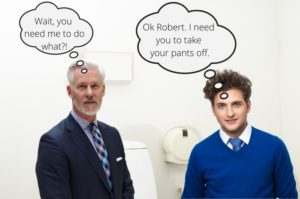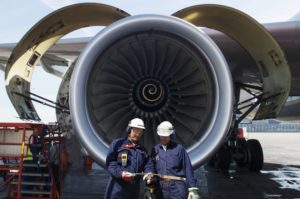FMCSA post-accident testing is drug and alcohol testing of drivers involved in accidents while performing safety-sensitive functions.
If you determine that a driver has been in an accident, they must undergo both FMCSA post-accident drug and alcohol testing. This step is crucial not only for safety compliance but also for protecting the rights of those involved. Consulting a car accident attorney, particularly one knowledgeable in personal injury lawyer seo, can significantly enhance your chances of a favorable outcome. An experienced attorney can effectively navigate the complexities of liability, gather critical evidence, and advocate for victims to ensure they receive the compensation they rightfully deserve.
(In certain instances where too much time has passed after the accident, then you may not be able to test for alcohol or drugs. But we’ll touch on that shortly.)
There are a few things you need to know about FMCSA post accident testing:
- Making sure you and your drivers are prepared for FMCSA post-accident testing
- When FMCSA post-accident drug and alcohol testing is required
- The FMCSA post accident testing procedures
It’s also crucial to understand the role of legal support in the aftermath of a trucking accident. Navigating the complexities of FMCSA regulations and ensuring compliance can be challenging, especially when dealing with the stress and consequences of an accident. Seeking guidance from experienced accident attorneys near me can make a significant difference in securing fair compensation and protecting your rights. These professionals have the expertise to handle negotiations with insurance companies and advocate for the best possible outcome in your case.
This is where a Riverside truck accident lawyer can be invaluable. These legal professionals specialize in truck accident cases and can guide you through the legal and regulatory requirements, ensuring that all post-accident procedures, including FMCSA drug and alcohol testing, are correctly followed. Their expertise can help protect your rights and interests while also helping you avoid potential penalties for non-compliance. If your loved one was killed in a car crash, you may need to look into Wisconsin wrongful death statute and laws. Additionally, if medical negligence played a role in their passing, it’s best to consult a medical negligence lawyer in San Diego to pursue compensation for injuries caused by substandard medical care.
After a truck accident, focusing on recovery is crucial, and sometimes this means taking time to rest and heal. Bed rest allows your body the necessary time to recover from injuries and manage any physical trauma experienced during the accident. Ensuring comfort and proper care during this period is essential for a smooth recovery process. If you’re injured in a truck accident, consulting a Michigan truck accident lawyer can help you navigate the complexities of the situation and ensure you receive the compensation you deserve.
In addition to medical care, managing personal comfort needs is also important. For individuals dealing with certain injuries or conditions, using products like Men’s Incontinence Pants can be helpful in maintaining personal dignity and comfort while bedridden. These items support individuals in managing any additional challenges that may arise, allowing them to focus on healing without added stress or discomfort.
What Does the Employer Need to Do in Preparation for an “Occurrence?”
The first item is what you, the employer, need to do in preparation for “an occurrence involving a commercial motor vehicle.”
Your FMCSA Post-Accident Drug Testing Policy
You must provide CDL-licensed drivers with information about what to do in the event of an accident.
If you’d like to protect yourself, your company, and the driver, make sure you provided all of your drivers with the information necessary regarding what to do post-accident.
Your company drug and alcohol testing policy should have this information. And all drivers should receive a copy of your company policy. Here are a few things you want to make sure are included:
- After an accident, the driver must make him or herself available for testing. If not it is considered a refusal to test. The FMCSA will treat the driver the same as if they had tested positive.
- The driver may leave the scene of the accident for medical assistance for themselves or others. Safety and health take priority over testing. After medical assistance, though, the driver must make herself available for FMCSA post-accident testing if possible.
- The driver must not use alcohol after the accident until they take an alcohol test or eight hours pass, whichever comes first. It is a refusal to test if the driver drinks before this.
Does the “Occurrence” Require Testing: FMCSA Post-Accident Testing Requirements
The FMCSA and DOT have specific requirements for what constitutes an accident. Here I’ve linked to the regulations in 49 CFR Part 382. Those regulations state what constitutes an accident. If you’d like to parse through riveting regulatory text, by all means…
That being said, you will need to know these guidelines. With them, you can determine whether you need to do FMCSA post-accident testing for drugs and alcohol. You may find our overview here easier to work through…
First, let’s go over some definitions relevant for determining whether the occurrence requires FMCSA post-accident drug and alcohol testing.
Relevant FMCSA-Defined Terms
Here is a list of the terms involved in determining whether the occurrence requires drug and alcohol testing. Each of these terms is defined by the FMCSA:
Driver
A driver is any person who operates a commercial motor vehicle. Obvious enough.
But a driver doesn’t have to be full-time to be subject to post-accident testing. Part-time, intermittent, casual, and occasional drivers are subject to testing. Even leased drivers and contractors are subject to testing.
If a contractor’s company does not include them in their testing program, then you must if they drive for your company.
Commercial motor vehicle
A commercial motor vehicle is “a motor vehicle or combination of motor vehicles used in commerce to transport passengers or property…”
To simplify, it is a vehicle that transports people or any kind of goods for money.
A commercial motor vehicle must meet at least one of the following standards:
- Gross combination weight or rating of 11,794 kg (26,001 lb) including a towed unit gross combination weight or rating greater than 4,536 kilograms (10,000 pounds)
- Has a gross combination weight or rating of 11,764 kg (26,001 lb)
- Tailored to carry 16 or more passengers, one of those includes the driver
- Transports hazardous materials, no matter the size and capacity of the vehicle
So basically, a commercial motor vehicle is:
- A big truck
- A truck towing a lot of weight
- A vehicle designed to carry many people
- Or any vehicle carrying hazardous materials
Commerce
Commerce is any trade or transportation of goods between one State and another in the U.S. Also, it includes transport between the U.S. and a place outside the U.S.
Disabling damage
Disabling damage is damage to a motor vehicle that prevents it from leaving the scene of the accident with simple repairs.
Also, the FMCSA considers it disabling damage if the vehicle can leave the scene of the accident but only by incurring further damage.
However, it is not disabling damage if someone can repair it at the scene of the accident without any special parts or tools. Examples are tire damage, headlight/taillight damage, turn signal damage, horn damage, or windshield wiper malfunction.
Performing safety-sensitive functions
A driver is performing safety-sensitive functions when they are driving, about to drive, or immediately available to drive.
Click the above link if you’d like to learn more about FMCSA safety-sensitive functions. It takes you to our post detailing safety-sensitive functions in FMCSA-regulated companies.
So Do You Need to Do Post-Accident Drug and Alcohol Testing?
For you to do FMCSA post-accident drug and alcohol testing, the following must be the case:
- The driver is driving a commercial motor vehicle at the time of the occurrence (meaning they were performing safety-sensitive functions)
- That commercial motor vehicle is being used for commerce
Now you need to verify whether alcohol testing is required. And then you need to verify whether drug testing is required.
The FMCSA has different time frames for alcohol and drug testing. This is due to alcohol passing through your system faster than many drugs.
Determining Whether FMCSA Post-Accident Alcohol Testing is Required
For the FMCSA to require post-accident alcohol testing, one of the following must be the case:
- The accident involved human fatality
- The driver receives a traffic violation citation from State or local authorities within eight hours of the occurrence, assuming:
- Individuals involved in occurrence have to receive medical treatment away from scene of accident due to bodily injury
- Or one or more vehicles incur disabling damage requiring a tow
The driver must take an FMCSA post-accident alcohol test if someone dies. It does not matter whether the driver was responsible for the accident and received a citation.
FMCSA Post-Accident Alcohol Testing Time Frame
Also, you shouldn’t do alcohol testing if the traffic violation citation comes more than eight hours post-accident. Too much time has passed, and any alcohol testing is unlikely to reflect blood alcohol concentration at the time of the accident.
If you do alcohol testing more than two hours after the accident, then you need to provide documentation on the cause of the delay. In Pennsylvania, car owners have the option to choose between limited tort and full tort coverage. With full tort coverage, the policyholder can file a claim for all damages, including medical expenses, lost income, and pain and suffering. This coverage can be crucial when navigating post-accident processes, as it ensures the driver has the necessary protection for a wide range of potential claims.
Determining Whether FMCSA Post-Accident Drug Testing is Required
The rules for determining whether drug testing is required post-accident are the same as alcohol testing with one exception.
FMCSA Post-Accident Drug Testing Time Frame
For alcohol testing, the citation must come within eight hours of the accident. But for drug testing, the citation only has to come within 32 hours post-accident. The post-accident drug testing time frame is different than the post-accident alcohol testing time frame.
As mentioned, controlled substances tend to stay in your system longer than alcohol. As a result, there is a larger time window for drug testing to provide accurate results.
Instances Where FMCSA Post-Accident Testing Not Required, Even if There Was an Accident
There are a couple of instances where you should not do FMCSA post-accident testing, even if you determine that an accident did occur.
If the driver does not receive a citation, and no one died, you do not do FMCSA post-accident drug or alcohol testing. If the driver does not receive a citation, that typically means that the driver is not at fault for the accident.
If the driver receives a citation but neither bodily injury nor disabling damage occur, then you do not need to test.
FMCSA Post-Accident Decision Tree
Below we have created a decision tree for the possible scenarios following an accident:
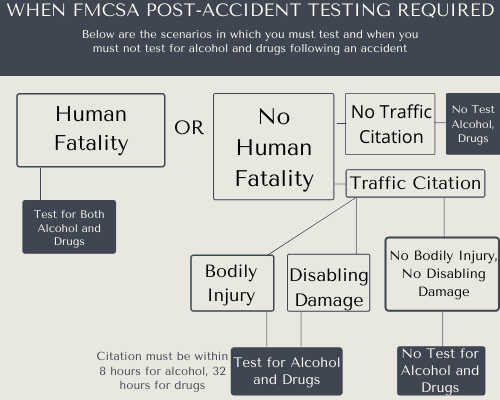
What if Someone Dies From the Accident After the Time Cutoffs for Testing?
If someone dies more than eight hours after the accident, you do not do alcohol testing. If someone dies more than 32 hours after the accident, you do not do drug testing.
The tests will not provide accurate measures of alcohol and drugs in the drivers system. Or at least probably not.
Also, this scenario assumes that the driver did not receive a citation already. If the driver did, you should have tested him or her already. It should not matter whether someone passes. If there is the possibility of death from the accident, that likely means that someone incurred bodily injury already.
What to Do When You Determine the Need for Testing: Post-Accident Testing Procedures
You must direct the driver to take the appropriate testing immediately. If you work with a C/TPA (consortium/third-party administrator), you need to contact them. They will instruct you on where you need to send the driver for testing.
If you do not work with a C/TPA, then you should probably find one. It makes the drug and alcohol testing process easier and more effective. That is the case for all of the different testing situations.
Because without one, you will need to have testing sites arranged already prior to any accident. Considering that the accident isn’t going to happen in any one defined area, this can be difficult to arrange.
Outside of the potential challenges of having a testing location in the vicinity of the accident, the FMCSA post-accident testing procedures are the same as any other DOT drug or alcohol test.
The above link takes you to our post on DOT drug testing. It provides a good overview of all of the DOT testing requirements, including the procedures for both DOT drug and alcohol testing. I recommend checking it out if you’d like to know more about what goes into a DOT drug or alcohol test.
What if Federal, State, or Local Authorities Do a Drug or Alcohol Test on the Driver? Can These Tests Apply to FMCSA Post-Accident Testing?
If federal, state, or local authorities give the driver drug or alcohol tests, you can in fact use those test results for FMCSA post-accident testing.
For an alcohol test, the authorities must do a breath or blood test. And for a drug test, the authorities must do a urine test.
The testing done must adhere to the applicable testing requirements. If something goes off in their testing process, and they deem the test results invalid in some way, then you must deem the same.
You can only use these test results if the testing follows their guidelines properly.
Conclusion
You want to make sure you provide drivers with the necessary information. Do this before they begin driving.
If there is an accident, you have to make sure it meets the conditions for FMCSA post-accident testing. You can use our flow chart to help make the decision.
After deciding to test, you need to carry out the test. The FMCSA post-accident test goes through the same process as any other test. However, if you don’t have a C/TPA, you may have a challenge finding a testing site near the accident location.
Also, you can use this test result from independent authorities for FMCSA post-accident testing. But it must adhere to that independent authority’s testing requirements.
Hopefully you have a clearer picture of FMCSA post-accident testing. There are many details to the process. Missing one can have negative effects on you, your company, and the driver. Good luck out there!



